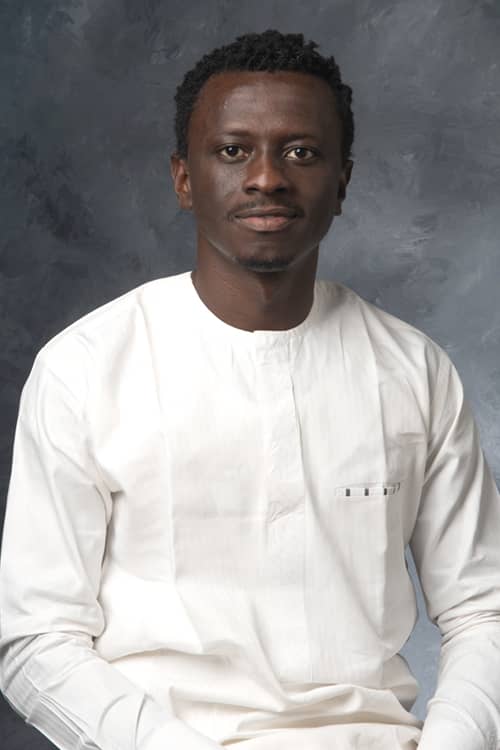
Ebenezer Olamiposi Adeyemi, Ph.D. student, Anthropology
Studies global health disparities
“Ebenezer is interested in exploring global and local factors that engender marginality in Nigeria and how poor and marginalized communities in Nigeria negotiate access to health care amid increasing global inequality and resource deprivation.” – Jennifer New, Obermann Center for Advanced Studies
• Hometown: Osun State, Nigeria
• Faculty mentor/advisor: Dr. Theodore Powers, Associate Professor
• What is your degree program and expected graduate date? I am pursuing a PhD in anthropology. My expected graduation date is May 2025
• Please describe your research: My doctoral research explores the intersection of the urban landscape and public health. Specifically, I am exploring how living on the landscape of Makoko, a large informal settlement in Lagos, Nigeria, makes residents more susceptible to infectious diseases like malaria. On the other hand, I am studying strategies that Makoko residents use to negotiate access to health care to treat malaria, the most prominent health issue in the community, despite government marginalization.
• In simple terms, why does this research matter? Given the increasing rate of urbanization and deepening social-economic inequality globally, many people across the world are being pushed to the margins of cities to areas like Makoko, which is characterized by government marginalization, inadequate social amenities like clean and hygienic water, waste disposal systems, hospitals and increased susceptibility to infectious diseases. Thus, my research contributes to the growing social science literature that analyzes the global and local factors that push people to the margins of urban landscapes and make them susceptible to infectious diseases. Additionally, this research contributes to broad debates about the ingenious ways through which people living in marginalized communities negotiate survival and access to important resources, like healthcare, across the world despite growing social-economic inequality.
• How soon after starting at the University of Iowa were you able to participate in research? I started working on this research with my faculty advisor since the Fall 2019 semester, my first semester at the University of Iowa
• How has being involved in research made you more successful at the University of Iowa? Being involved in research has enabled me to apply anthropological methods of inquiry (like interviews, fieldwork) to gather preliminary data for my doctoral dissertation. Additionally, this research has given me the opportunity to apply for and win competitive internal and external research grants to support my doctoral research.
• What are your career goals and/or plans after graduation? My goal is to become one of the leading African anthropologists involved in researching the intersection of landscape, inequality, power, and infectious diseases on the one hand, and survival strategies in marginalized communities on the other. After graduation, I plan to continue researching and teaching anthropological topics.
• Does your research have connections to or implications for COVID-19? Please explain. Given the disproportionate rate with which COVID-19 affected communities and determined access to resources across the world, my research on the intersection of health, landscape, inequality, and survival strategies have connections to Covid-19. This is because living within a specific landscape increases my research population’s susceptibility to infectious diseases and hinder their access to social services, like healthcare, pipe-borne water, that are essential for survival.
Banner location: not on display—
